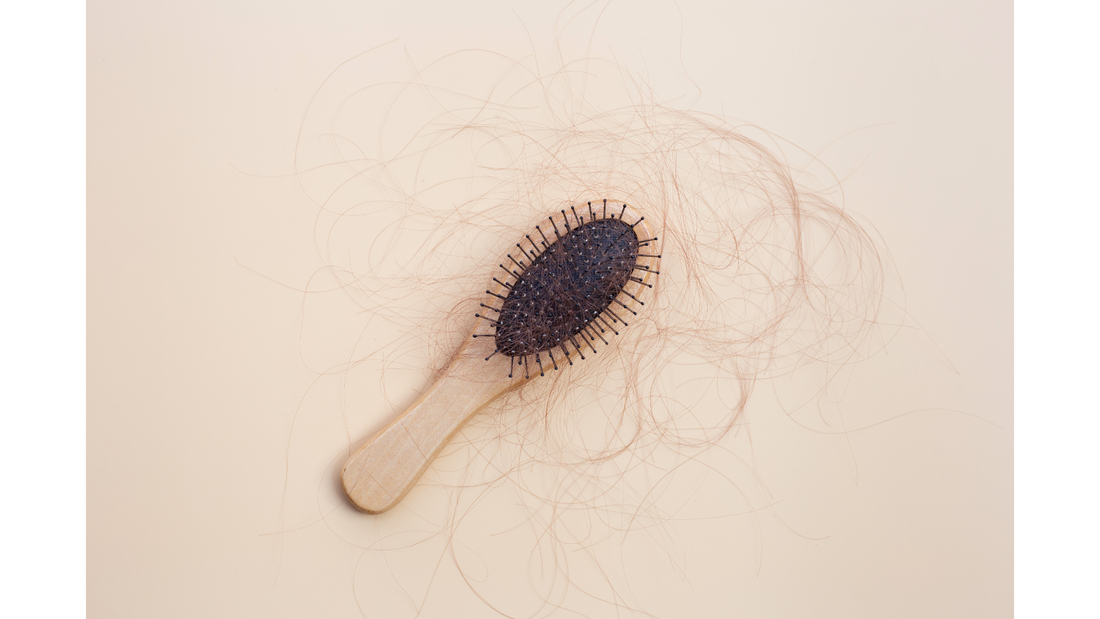Notice the sudden slimming of your favorite celebrities (and Bravolebrities)? It seems like these days everyone is using semaglutide drugs like Ozempic and Wegovy, developed to treat Type 2 Diabetes, to drive rapid weight loss. Our diet culture has found us Ozempic-curious, too. But, we’re obsessed with all things hair health and growth here at Helix Hair Labs, so reports of hair loss associated with use of semagultide drugs have us on high alert. We looked to medical professionals to learn more to ask the hard hitting question: will Ozempic make us lose our hair😱?
First, note that this is not medical advice. Always consult with a medical professional before starting any medical treatment, diets, etc.
Semaglutide has wide-ranging reports of side effects from users, including nausea, dry mouth, and constipation. While hair loss isn't a listed side effect for Ozempic, it did show up in 3% of people in Wegovy clinical trials, according to NBC News. It also appeared in 1% of people taking a placebo.
The side effect is also often discussed on social media, including TikTok and Reddit. One Ozempic subreddit user complained of shedding everytime they brush their hair; another said they noticed chunks of hair coming out in the shower.
While unsettling, the phenomenon is not surprising. A type of temporary hair loss known as telogen effluvium is a known side effect of rapid weight loss, according to the Cleveland Clinic. Telogen effluvium, which is also known as stress shedding, can be triggered by many factors, including illness, surgery, fever, and pregnancy, Susan Bard, MD, board-certified dermatologist at Vive Dermatology, previously told Insider.
When the body experiences intense emotional or physical stress — like weight loss — it halts non-essential functions like hair growth to preserve nutrients, according to Bard. In the case of semaglutide, "we know that for normal hair growth, adequate caloric intake should take place. So when patients are placed on severe calorie-restrictive diets, this will impact their hair growth," Dr. Rocio Salas-Whalen, an endocrinologist at New York Endocrinology, said on TikTok.
The shedding usually occurs three to six months after the period of stress, Bard told Insider, because it takes time for the hair cycle to shift into a new phase. Hair supplements like Biotin may help, but telogen effluvium usually ends on its own after several months, she said.
Salas-Whalen also recommends semaglutide patients avoid severe calorie restriction, which can lead to nutrient deficiency, add enough protein into their diets, and get good sleep at night.
"With telogen effluvium, you will not lose all your hair, you will not go bald, and it will grow back, so it's not a permanent situation," Dr. Susan Massick, a dermatologist at Ohio State University, told NBC News.
TLDR; it seems hair loss associated with semaglutide is not due to the drug itself, but rather the physical stress of rapid weight loss and nutrient deficiency.
Do with that what you will! We definitely would not start taking any medications without first consulting with our medical professionals.
IN THE LAB
21.07.2023

Will Ozempic Make You Lose Your Hair?
